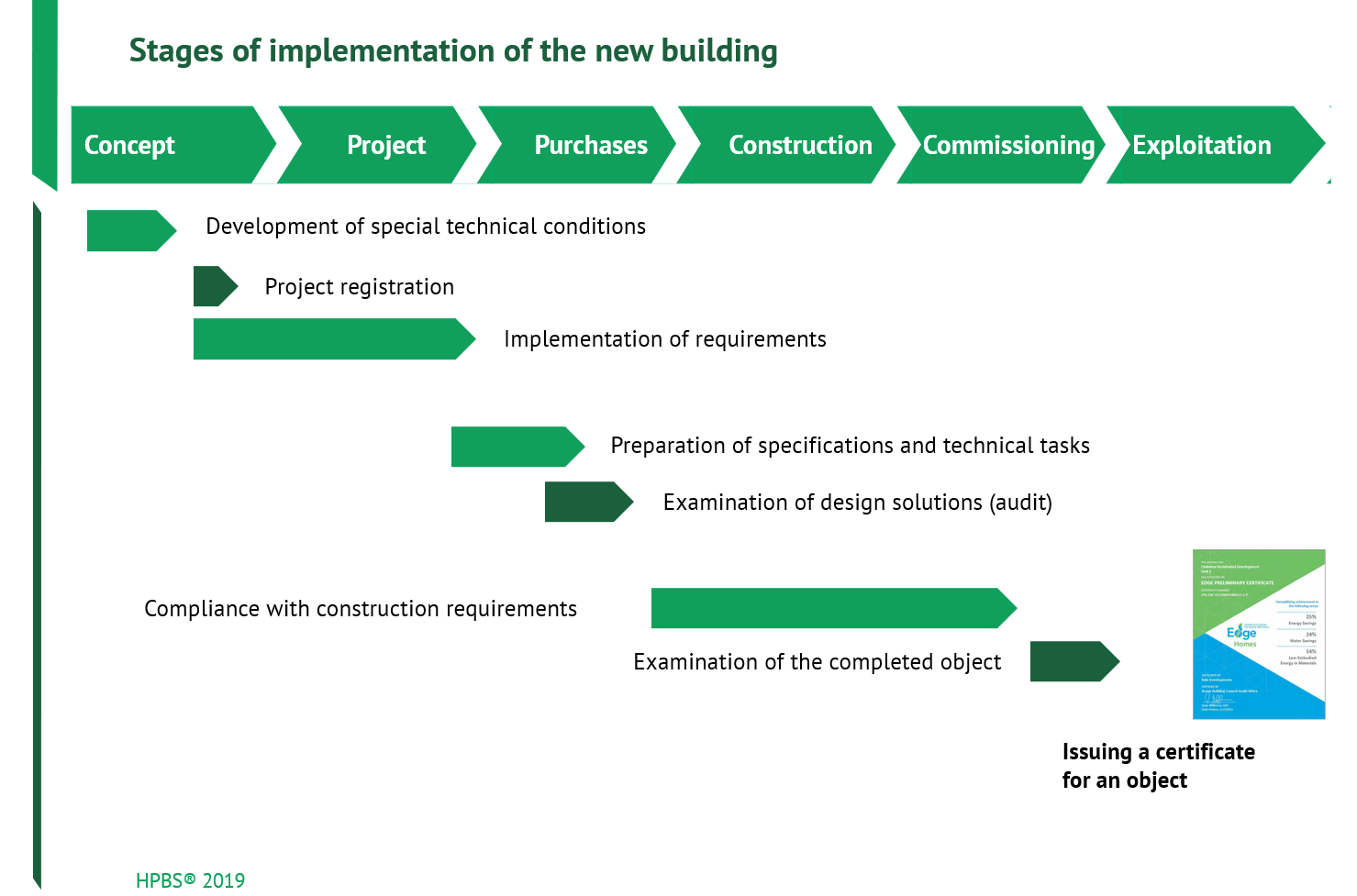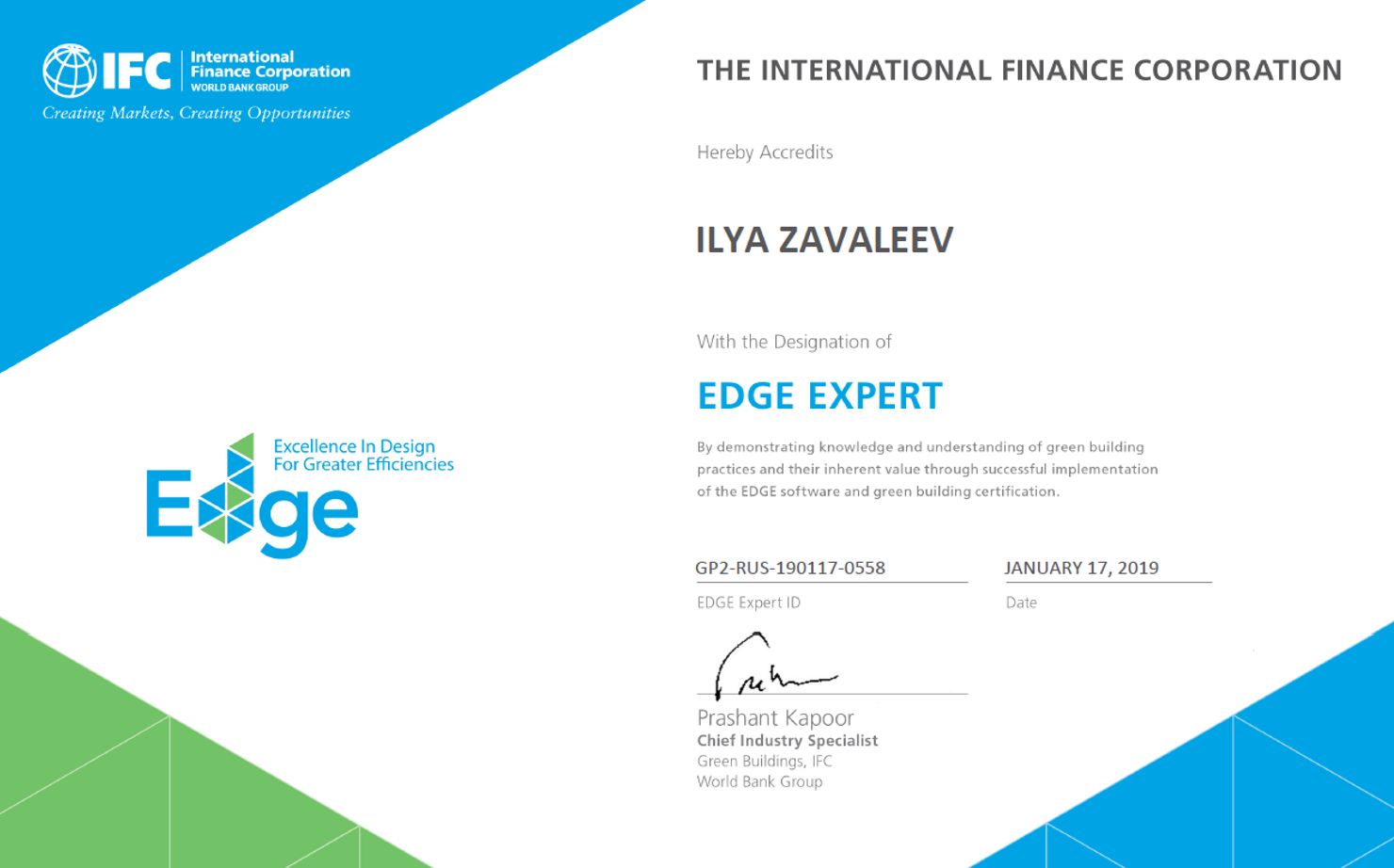




The EDGE standard was developed by the World Bank Group company – IFC (International Financial Corporation) and is funded by Switzerland and the UK in order to promote and simplify green and sustainable construction practices in developing countries, which allows them to receive various benefits from international institutions.
EDGE requirements are not so difficult to implement compared to the most common BLEED, WELL and BREEAM standards.
Certification takes place in two stages:
In turn, HPBS provides comprehensive consulting services for the development of special technical conditions for the successful receipt of the EDGE certificate.
The EDGE system is focused on the environmental characteristics of the building, covering the following categories:
For example, the extraction of wood does not require significant energy consumption, while the production of bricks takes a large amount of energy to burn clay, and from the point of view of the EDGE system, the use of wood is more environmentally friendly. Thus, an individual characteristic of the carbon footprint is constructed for each material.
The purpose of the EDGE standard is to provide a simple, inexpensive and understandable building planning and certification tool for developers who want to apply green technologies in their projects, but do not have large resources to use complex systems. Using the EDGE toolkit, a developer can quickly evaluate design solutions in terms of their cost, payback period and effect on ecology and energy efficiency using a free and simple online tool.
The online tool provides a catalog of ready-made engineering solutions and can estimate approximately the effectiveness of their implementation for the following types of buildings:
LEVEL 1: EDGE Certified – 20% reduction in costs and emissions in each of the three categories according to the baseline, which is automatically calculated for each project based on the area and based on its characteristics;
LEVEL 2: EDGE Advanced – 40% in each of the three categories;
LEVEL 3: Zero Carbon – 40% energy efficiency. The building must receive 100% of its energy from renewable sources. The level is available for obtaining within a year after receiving the main certification and is confirmed every 4 years.
To simplify the process, the possibility of portfolio certification is provided, that is, obtaining a single certificate not for one single building, but for a complex of buildings at once.
The main advantages of this approach are:

The development of special technical conditions for designers and contractors takes about a month on average. In the process of joint brainstorming by the consulting organization and the customer, engineer, architect and designer, where the conditions necessary for the successful receipt of the certificate are determined, such as the choice of building material or the selection of engineering equipment. Further, the project audit process also takes about a month. After the construction is completed, the necessary documentation is collected for the final audit, which also takes one month. Thus, the process of certification itself takes about three months.
Certification costs (required fees):
* An individual discount is provided for portfolio certification.
Presentation according to the EDGE standard
